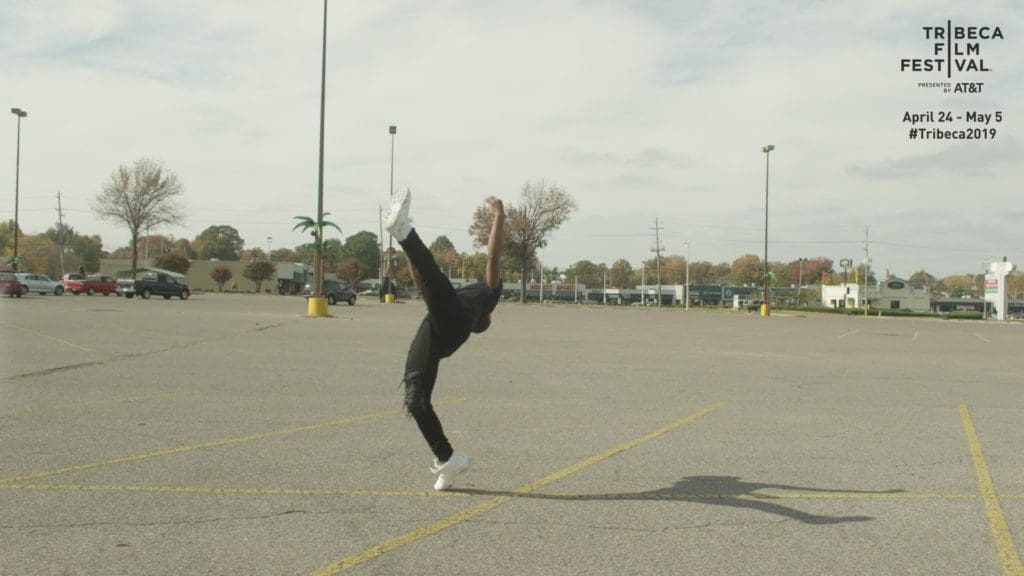 Photo Courtesy Prodigy PR
Photo Courtesy Prodigy PRIt’s safe to say the average person probably doesn’t know much about Memphis Jookin. Created in the city of its name, the style is a hip-hop off-shoot born in the dance battles that took place in the Memphis nightlife staple, Crystal Palace, a roller rink which opened October 1, 1981 and closed in 2017. Focused largely on fancy footwork that resembles roller skating moves, the style has gone worldwide in the last few years thanks to Chicago born and Memphis raised dancer, Lil’ Buck. Born Charles Riley, Buck became a viral sensation after director Spike Jonze posted a recording of a spontaneous collaboration between Buck and cellist, Yo-Yo Ma. Now, in the new documentary, Lil’ Buck: Real Swan, writer-director Louis Wallecan explores Buck’s rise to fame.
That said, as the dancer himself says, “There’s a lot more to this than just dance, this is a whole part of a culture,” and Wallecan’s film emphasizes that. As former employees and residents of the neighborhood explain, the Palace wasn’t just a roller rink, but a center of entertainment and community that kept kids off the street by allowing them to channel their energy into something positive. That positivity reached a wider audience thanks to the homemade jookin DVD’s Buck’s current manager, Jai Armmer, produced and distributed. As Buck talks about the way those DVD’s convinced him to start dancing at age 11, Wallecan shows clips from various recordings, formin a history of how the style evolved and became popularized.
There and elsewhere, it’s the way Wallecan mixes both new and archival footage that makes his film so compelling—even in scenes that don’t feature Buck at all. That’s particularly pronounced in the film’s early sequences. Though a scene in which a woman dances in the empty shell of the Palace’s kitchen is beautiful in the way it contrasts the artistry of her movement with the banality of the space, it’s a scene with Daniel Price, whose jookin videos particularly influenced Buck’s dancing, that’s most memorable. As Price dances beneath an overpass, he stops to greet a friend who drives by and then walks off with another acquaintance as the number ends. The moment is mostly likely choreographed, but the easy, smooth way both Daniel and Wallecan present the performance emphasizes both the skill involved and the way jookin is not just a dance, but integral to Memphis culture.
That sense is only further emphasized in the film’s most striking performance scene. As we watch footage of Buck performing with Yo-Yo Ma in China, Wallecan intercuts footage of Buck doing the same dance in a Memphis parking lot. Though his first performance with the cellist was improvised, here, we see that Buck can bring that same spontaneous and emotional quality to choreographed routines too. It’s perhaps no revelation to those already convinced of Buck’s gifts, but for skeptics, it proves that, regardless of its origin, jookin is an art form on the level of any classical dance form.
While that moment fulfills Buck’s realization that his talent, “could get [him] out of the ghetto,” it also emphasizes that it’s precisely that upbringing that allowed him to succeed in the first place. Without the jookin DVD’s and the opportunity to learn ballet thanks to Memphis-based company, New Ballet’s commitment to letting the city’s children learn dance regardless of ability to pay, Buck wouldn’t be the great dancer he trained so hard to become.
“Jookin is all of your experiences put into movement,” Buck says and Lil’ Buck: Real Swan proves that. Though the film is technically the exploration of a single dancer’s career, what makes it so effective is that Wallecan also explores the forces both internal and external that allowed him to succeed. Viewers looking for more detail about how Buck creates now and where his career is headed will perhaps be disappointed, but for viewers unfamiliar with the dancer’s work beforehand, Wallecan’s film makes it impossible to deny his artistry.

